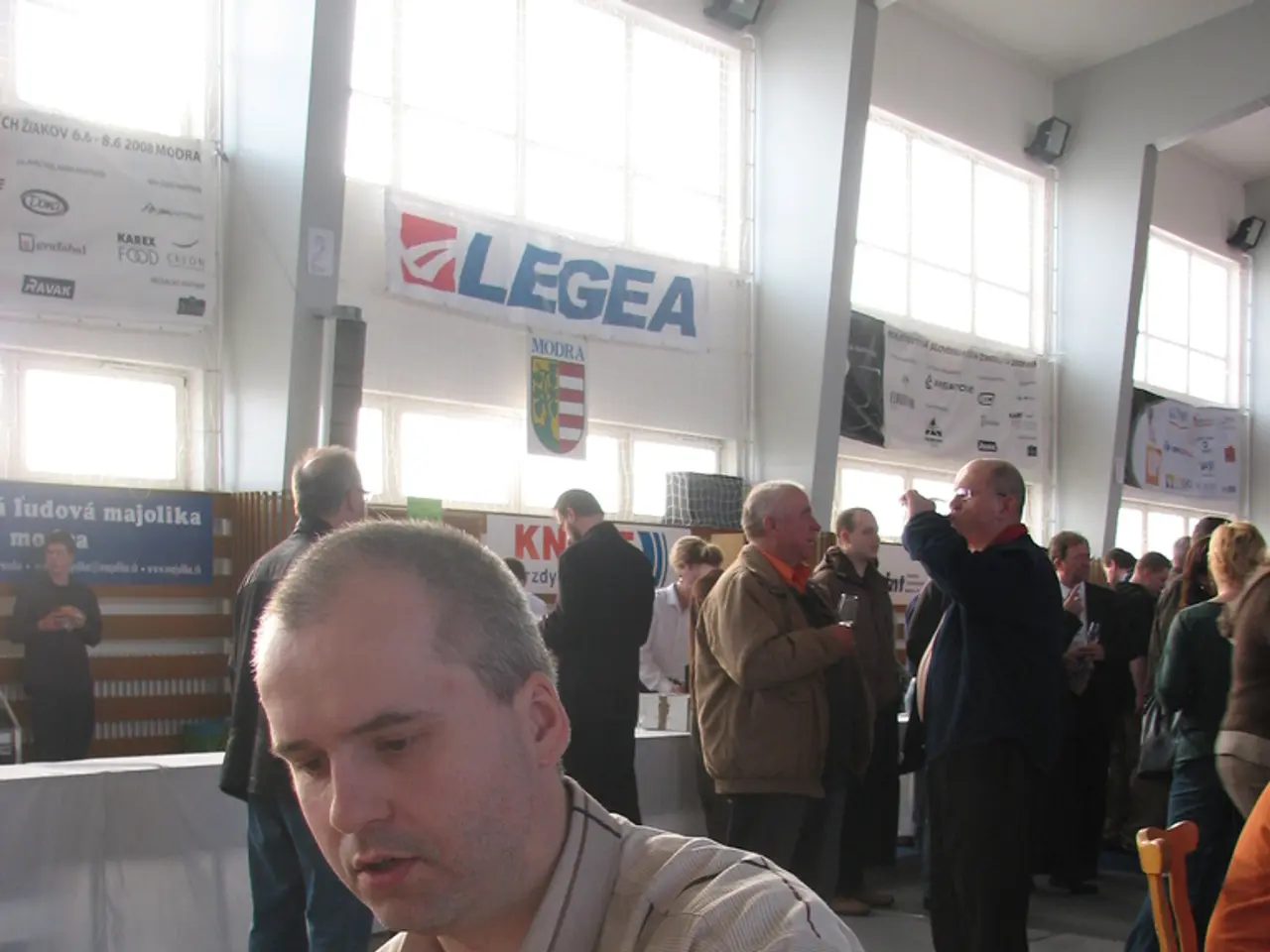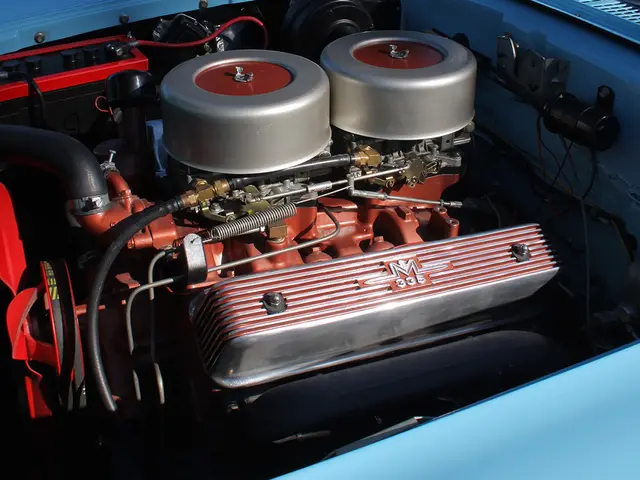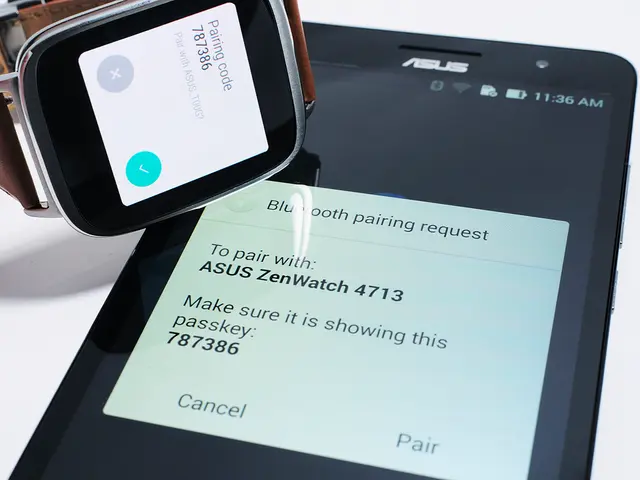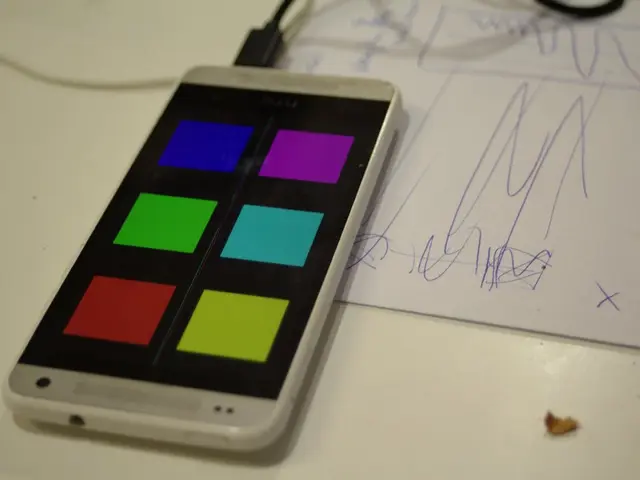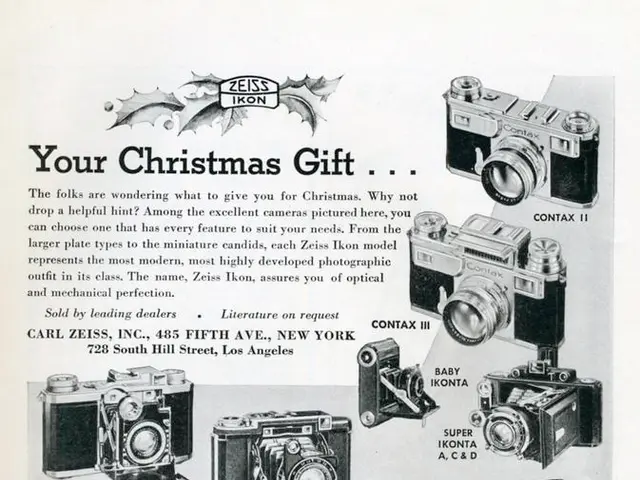Windshields to transform into visual screens, as per Tesa and Zeiss's plans
The technology world is abuzz with excitement as Tesa and Zeiss, two renowned German companies, have partnered to bring holographic film technology to market readiness. This innovative development could potentially revolutionise various industries, from automotive to medical, and even the harbour industry.
Tesa, known for its adhesive solutions, has already demonstrated the potential of holographic films in a practical setting. The Hamburg Port Authority (HPA) has successfully implemented a similar technology, dubbed "Smart Window", in a ship's front window. This groundbreaking innovation provides crew members with navigation information directly within their field of view, thereby increasing glances at the water by 250% and significantly enhancing work safety.
One of the key advantages of Tesa's holographic films is their space-saving nature, considered a significant improvement over existing glass displays. The technology could potentially find application in the development of mini-mirrors for smart glasses, as both involve display technology.
The partnership between Tesa and Zeiss aims to industrialise hologram technology for large-scale applications, particularly in the automotive industry. Holographic films provide transparent displays of necessary information without obstructing outside visibility, eliminating the need to take eyes off the road. This could potentially lead to safer driving experiences and improved work conditions for drivers and crew members alike.
However, the potential applications of holographic technology extend beyond the automotive industry. The medical field is another potential area for its use, as suggested by the article "Apoqlar: Are holograms conquering medicine?". The technology could potentially revolutionise medical procedures, making them safer, more efficient, and less invasive.
As for the development of mini-mirrors for smart glasses, a company named Oqmented, based in Itzehoe, is already making strides in this area. Whether their work is directly related to the holographic film technology developed by Tesa and Zeiss remains unclear, but it is possible that their efforts could be relevant to the development of holographic displays.
Interest in the holographic film technology developed by Tesa and Zeiss is growing, with several renowned customers expressing interest in its applications. The Hamburg Port Authority's implementation of the "Smart Window" technology in a ship's front window has received international attention, and the partnership between Tesa and Zeiss is expected to generate high demand for their innovative technology.
For more information about Tesa, visit their official website at www.tesa.com. As for NXP Semiconductors, they are celebrating their 100-year anniversary in Hamburg, further cementing the city's reputation as a hub for technological innovation.
The impact of this holographic film technology on the harbour industry is likely to be significant, as suggested by the article "International boost for Hamburg harbor". As the technology continues to develop and find applications in various industries, it is clear that the future is bright for holographic film technology.
Read also:
- Organic Mattress Essentia Stratami: Optimal Comfort Pick for a Healthy Sleep Experience
- Fixing a crucial aspect in Apple's Studio Display stands to improve the experience for both gamers and creative professionals alike.
- Practical Electrical Suggestions for Environmentally Mindful Garden Enthusiasts
- New addition to the Australian Mercedes-Benz G-Class lineup: 2025 G 450 d, powered by diesel engine
